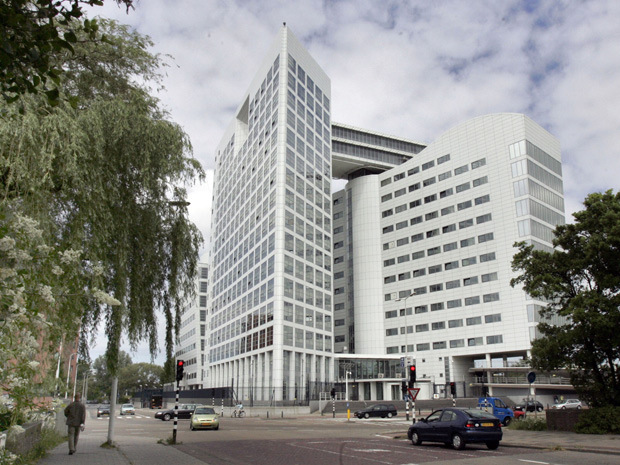Birju Kotecha, a graduate tutor in law at Northumbria University Law School, joins JiC for this post on the challenges of measuring the ICC’s ‘success’. Enjoy!
One of the striking features of the International Criminal Court (ICC) is its ability to draw attention from a multitude of disciplinary perspectives. Law, political science, criminology, philosophy, international relations and even sociology have invested in the long-standing discourse on the ICC’s consequences, challenges, limits and pursuits. A position that unites many (though not all) ICC researchers is the desire for the Court to succeed. But what counts as ‘success’? Achieving consensus or clarity on how to measure the effectiveness or success of the ICC is challenging. Can we decide or develop appropriate metrics to assess whether the ICC is performing ‘successfully’?
In an era of market-orientated performance criteria, measuring institutional success in any public sphere is typically done through the use of key performance indicators. These are mostly ascribed values and numbers. It is what domestic public bodies from schools to hospitals are often assessed against, accompanied by the popular complaint of a detrimental “target culture”. Such performance measures can be blunt tools, commodifying public goods and values and are unable to look at an institution’s intrinsic worth. They capture pure outcomes without understanding the inherent limitations, complexities, values and nuances that dictate or skew the data. They are of limited value as they are unable to explain the meaning or quality behind those successes.
Capturing ICC effectiveness through numbers alone, though valuable, can be similarly problematic and reductionist. Not least because there are insufficient benchmarks to compare the ICC’s work. And even comparisons between its work and the ad-hoc tribunals like the ICTY or ICTR is problematic due to their differing structures, features, budgets and jurisdictions.
The use of tables, rankings and numerical criteria would see ICC performance reduced down to a range of indicators including numbers of state parties, cases, successful prosecutions, average cost, duration of proceedings, extent of victim satisfaction and so on. If we take two of those examples, the raison d‘être of any court are both trials and convictions. In this regard the ICC’s quantifiable success is rather patchy. In 11 years since its operation there have currently been only 8 investigations, 6 arrests from a possible 23 along with 1 completed trial and conviction (which is subject to appeal) and 1 acquittal.
However, paradoxically and as if to highlight why measuring success is such a complicated business, it was former prosecutor Moreno-Ocampo who argued in 2006 that the lack of international trials was also a reflection of success if it was the result of domestic jurisdictions fulfilling their obligations to prosecute under the complementarity regime.
The effects and consequences of an institution that is as complex as the ICC with its range of political, social and legal dimensions is not always amenable to rankings, results and other statistical judgements. How for example, can we capture the impact on discourse, political re-positioning, due process, diplomatic efforts, or popular confidence in the goal of ending impunity? The question of what can be quantifiably measured should not be confused with the question of what should be measured.
Measuring success is often inward-looking. It is easy to measure a given output (convictions, warrants etc) but measuring the quality of inputs is also a worthwhile endeavour. Without answering how, one feature that I would argue that should be measured is a concept that appears frequently in ICC discourse: legitimacy. It enshrines much of what we want from the ICC. There is little doubt that it’s something that must be rigorously pursued, continually asserted and reinforced for an institution in its infancy.
Having attracted wide ranging criticisms, especially of having a political bias and a lack of impartiality, the ICC must grapple with both its actual and its perceived legitimacy. The Court’s behaviour must be legitimate and seen to be legitimate, but legitimacy ought to be an ultimate goal that can inform our understanding of a successful ICC.
Of course as a methodological standard, legitimacy is subjective, vague, indeterminate and difficult to reach a consensus on. However we should not abandon it as a measure for another numerical fix. In fact it can trigger a more multi-disciplinary and qualitative performance treatment. But what does it mean? I could not do the depth and complexity of legitimacy justice here but, crudely speaking, it can be seen as the faith and belief in the legality and justification of an institution’s authority.
Legitimacy can be drawn from the procedure, operation and workings of the ICC, something that it critical in a legal body. This can be interpreted in terms of independence, transparency, effectiveness and conformity to due process. Therefore, questions that inform whether the ICC is performing successfully could include:
- How well does the court meet the appropriate procedural standards required of fair trials? How competent are the arbiters of procedure, judges and advocates? How immune is the institutional operation from political influence, bias or manipulation? How clear, open, informed and certain are prosecutorial procedures? How timely, cost-effective and even-handed are advocacy teams in contributing to equal access to justice? How consistently and rooted in principle are admissibility issues such as complementarity and the gravity threshold dealt with? How well does the ICC respond to victim-centred demands of justice such as reparations or reconciliation?
Legitimacy is also drawn from the democratic underpinnings of the Rome Statute. Democratic legitimacy can be interpreted in terms of its appeal to universal values that all countries subscribe to, popular confidence in its mandate but also evidenced through the ICC’s relationship with both member and non-member states. Relevant questions for a successful ICC thus include:
- Has state non-ratification or membership been counter-productive to the ICC operation? How significantly does the ICC draw the will and positive consent of its member states, including willingness of member states to enforce arrest warrants where its jurisdiction demands? Are the ICC’s relationships with other institutions such as the UNSC or AU marked by an equality of arms? Is that possible? How effective are the institution’s judicial procedures in gaining confidence in those who are vested in its operation including member states, the UN, and victims. To what extent have its powers, decisions and discretions been marked by the principles of equality, independence, transparency, and consistency? How positively is the ICC perceived in the domestic populations in which it currently investigates?
How has the ICC performed across the dimensions of procedural and democratic legitimacy? The answers are best articulated elsewhere. But needless to say, the answers to some of the questions may make painful reading for ICC optimists. Of course, having high legitimacy credentials may not guarantee overall success. But it is a starting point. Rather than its own distant and lofty ideals such as deterrence or serving justice, developing a range of specific performance criteria to appraise the success of the ICC is, I believe, an effort worth making.





Pingback: Monday Linkage » Duck of Minerva